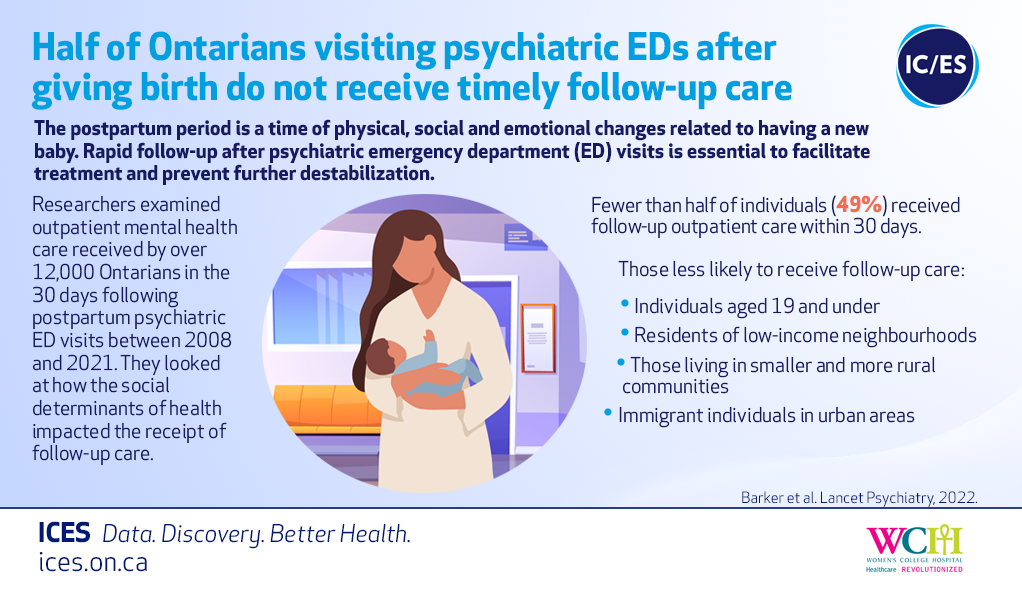A new study in The Lancet Psychiatry led by Women’s College Hospital psychiatrist and post-doctoral fellow Dr. Lucy Barker shows fewer than half of postpartum psychiatric emergency department (ED) visits were followed by timely outpatient care. The researchers also found that social determinants of health (SDoH), including income and immigration status, furthered disparities in access to care. These findings demonstrate a significant gap in care for a high-risk population.
“The postpartum period is a time of much change, including physical, social and emotional changes related to having a new baby,” says Barker. “We know that mental health challenges during this time can have a major impact on parents and their babies, and it is critical that we care for them with appropriate supports and services to prevent serious short- and long-term negative consequences.”
Approximately one in 100 obstetrical deliveries result in an ED visit for psychiatric reasons in the first year postpartum in Ontario, Canada. Given the high-risk nature of mental illness in the postpartum period – both for childbearing parent and their infants – rapid follow-up after postpartum psychiatric ED visits is essential to facilitate treatment and prevent further destabilization. “Having follow-up care is crucial to ensure that postpartum people with severe mental health concerns receive needed treatments, and it is extremely concerning how little this is happening.”
Using Ontario health services data from ICES and immigration data from the Immigration, Refugee and Citizenship Canada Permanent Resident Database, (IRCC), the study examines outpatient mental health care in the 30 days following postpartum psychiatric ED visits. In addition, it also looks at how SDoH impact the receipt of follow-up care. The findings identify a need for improved and more equitable post-ED outpatient care for postpartum individuals, with specific attention to centering young, low-income, rural-dwelling and newcomer individuals.
In this population-based study of over 12,000 individuals in the 12 years prior to the pandemic plus over 1,200 individuals during the pandemic, fewer than half of postpartum psychiatric ED visits were followed by timely outpatient care. Furthermore, the follow-up care provided was not equitably distributed. Those who were young and living in low-income and rural areas were less likely to receive a follow-up, as were immigrants in urban areas. “These disparities are unacceptable, and systematic change is needed to ensure that all postpartum people have access to needed mental health care,” says Barker.
We are failing at providing an essential component of health for postpartum individuals, and improvements in equitable access to post-ED mental health care are urgently needed to protect childbearing parents and their infants.
